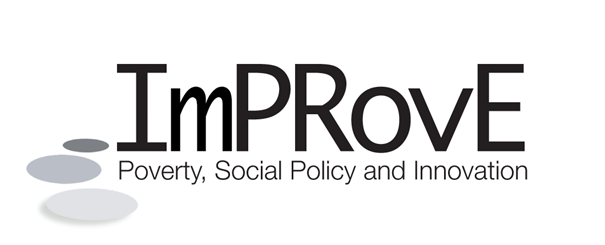The starting point of this work package is the observation that in some countries a shift in social expenditures from “passive” cash-related benefits to “activating” non-cash services took place. In the light of the poverty standstill as measured by the at-risk-of-poverty indicator, we hypothesise that increased spending towards these new policies and the shift from passive to active policy measures entails a loss of distributional power of the welfare state.
In this work package, we aim to unravel the role of services in the distributional outcomes of European welfare states (Paulus et al., 2010), the effectiveness of services in fostering employment, especially among women, and to identify policy designs which are not, or least, biased against the lower incomes.
We take childcare services as a case study for several reasons:
- it is an explicit European goal (adopted at the Barcelona summit in 2002) to “provide childcare by 2010 to: at least 90% of children between 3 years old and mandatory school age and at least 33% of children under 3 years of age” (European Council, 2002);
- it is considered a labour market instrument by removing disincentives to female labour market participation; 3) childcare fosters gender equality (Lewis et al., 2008; Esping-Andersen, 2009).
In addition, a paper provided by associate Grabka will focus on housing policies, complementing the case study.
We will use EUROMOD (most recent data available) to simulate the effect of public and private childcare services on the income distribution of a selection of 5 to 8 EU member states while simultaneously taking into account the (possible income-differentiated) tariff structure of childcare services and private childcare costs (parental fees), government expenditures (subsidies to childcare providers) and tax concessions.
In a second step we will integrate a structural labour supply model to evaluate the impact of these childcare policy measures on women’s employment decisions. This will shed more light on the possible contribution of childcare services in attaining the Europe 2020 employment and poverty targets. As an associate, Daniela Del Boca will enrich this work with a paper on maternal employment and childcare.
Finally, the results of the above described analyses will be used to identify policy designs leading to beneficial results of childcare provisions in terms of poverty and female employment decisions.
| Title | ||
|---|---|---|
|
Poster: The joint decision of labour supply and childcare in Italy under availability constraints |
598 KB | Download |
|
ImPRovE WP 16/09: The distributive effects of work-family life policies in European welfare states |
2 MB | Download |
|
ImPRovE WP 15/09: The joint decision of labour supply and childcare in Italy under costs and availability constraints |
948 KB | Download |
|
ImPRovE WP 15/07: Non-cash benefits from social housing in Europe: a comparative perspective |
831 KB | Download |
|
ImPRovE WP 15/04: The impact of child care costs and availability on mothers’ labor supply |
616 KB | Download |
|
ImPRovE WP 13/04. Money or kindergarten? Distributive effects of cash versus in-kind family transfers for young children |
2 MB | Download |

